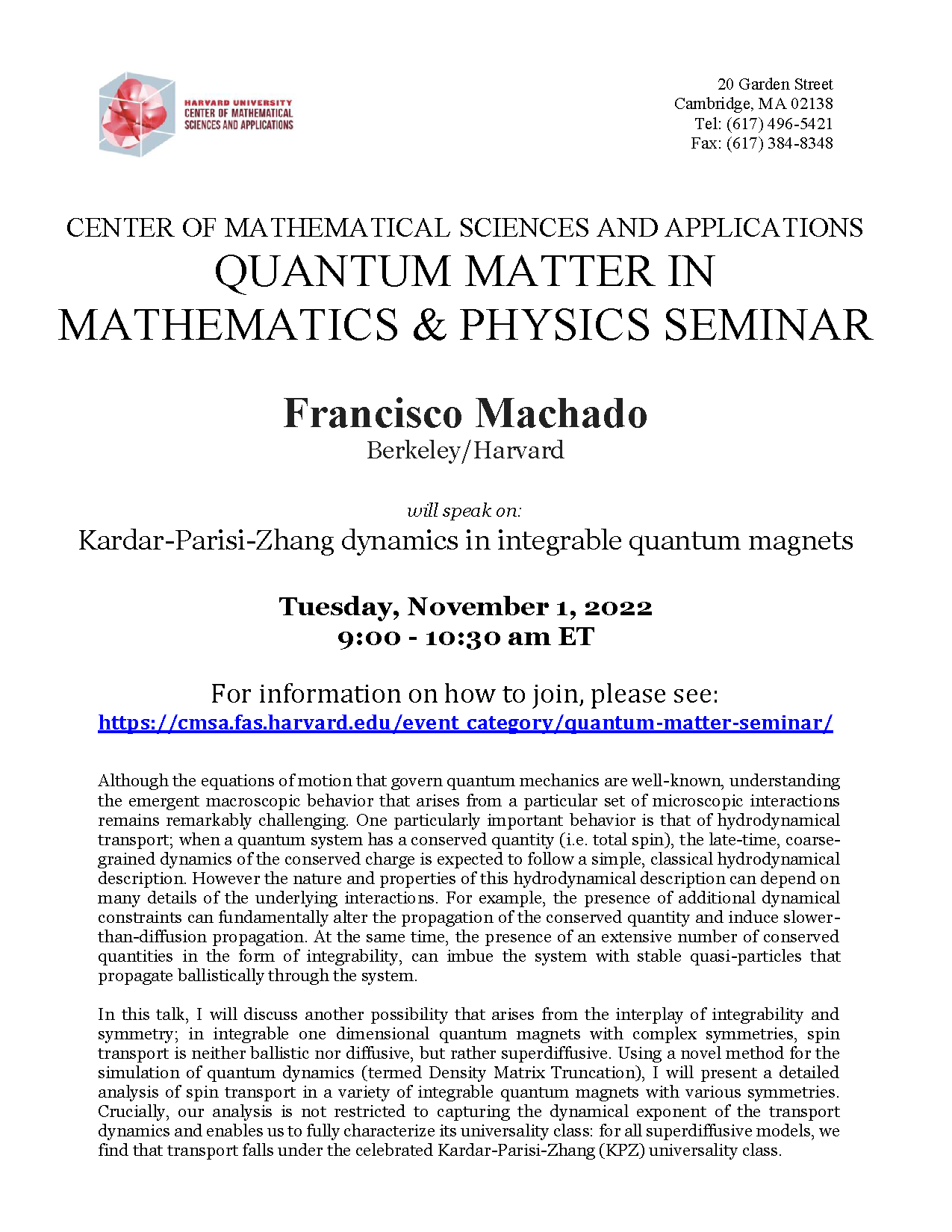Quantum Matter Seminar
Speaker: Francisco Machado (Berkeley/Harvard)
Title: Kardar-Parisi-Zhang dynamics in integrable quantum magnets
Abstract: Although the equations of motion that govern quantum mechanics are well-known, understanding the emergent macroscopic behavior that arises from a particular set of microscopic interactions remains remarkably challenging. One particularly important behavior is that of hydrodynamical transport; when a quantum system has a conserved quantity (i.e. total spin), the late-time, coarse-grained dynamics of the conserved charge is expected to follow a simple, classical hydrodynamical description. However the nature and properties of this hydrodynamical description can depend on many details of the underlying interactions. For example, the presence of additional dynamical constraints can fundamentally alter the propagation of the conserved quantity and induce slower-than-diffusion propagation. At the same time, the presence of an extensive number of conserved quantities in the form of integrability, can imbue the system with stable quasi-particles that propagate ballistically through the system.
In this talk, I will discuss another possibility that arises from the interplay of integrability and symmetry; in integrable one dimensional quantum magnets with complex symmetries, spin transport is neither ballistic nor diffusive, but rather superdiffusive. Using a novel method for the simulation of quantum dynamics (termed Density Matrix Truncation), I will present a detailed analysis of spin transport in a variety of integrable quantum magnets with various symmetries. Crucially, our analysis is not restricted to capturing the dynamical exponent of the transport dynamics and enables us to fully characterize its universality class: for all superdiffusive models, we find that transport falls under the celebrated Kardar-Parisi-Zhang (KPZ) universality class.
Finally, I will discuss how modern atomic, molecular and optical platforms provide an important bridge to connect the microscopic interactions to the resulting hydrodynamical transport dynamics. To this end, I will present recent experimental results, where this KPZ universal behavior was observed using atoms confined to an optical lattice.
[1] Universal Kardar-Parisi-Zhang dynamics in integrable quantum systems
B Ye†, FM*, J Kemp*, RB Hutson, NY Yao
(PRL in press) – arXiv:2205.02853
[2] Quantum gas microscopy of Kardar-Parisi-Zhang superdiffusion
D Wei, A Rubio-Abadal, B Ye, FM, J Kemp, K Srakaew, S Hollerith, J Rui, S Gopalakrishnan, NY Yao, I Bloch, J Zeiher
Science (2022) — arXiv:2107.00038

